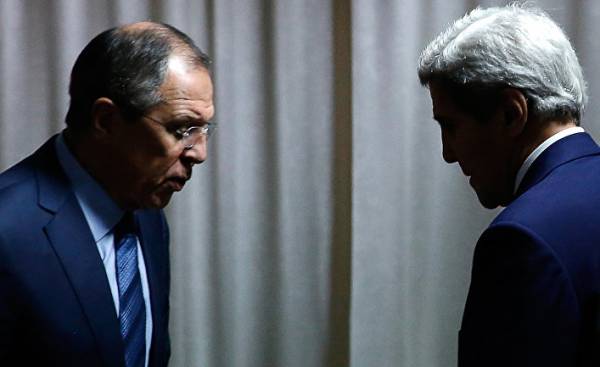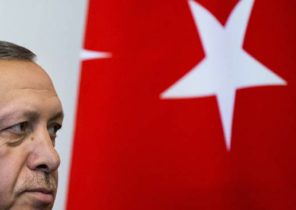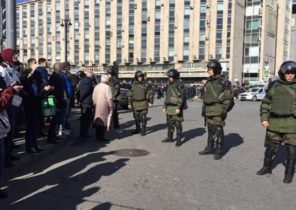
“You are Ambassador or a spy?” — roared the Minister of defence of the USSR Dmitry Yazov on the meeting with the Ambassador of Sweden Ariana by Berner (Berner Örjan) at the turn of the 1990-ies. They had to discuss military issues. Yazov did not hesitate for a minute when, growing rather red face, started to scream at Berner, for what he asked whether the Soviet Union to reduce the number of troops in close proximity to Sweden.
In his book “Rulers in the Kremlin,” Berner describes the meeting as a duel. With a grim and solemn sight of the Lord are toward each other from opposite ends of the Grand hall. After a few introductory questions Yazov publicly States that the Burner should stop snooping in areas that have no relationship to diplomacy. Furious Yazov gives the Burner a rebuke of what things are supposed to interest him.
For Russian diplomacy, it’s business as usual: aggressive to silence the opponent, not giving him even the slightest opportunity to get a word in. Margot Wallström (Margot Wallström) met with this method, when met with Sergey Lavrov in Basel two years ago.
As learned from the sources the journalist DN Michael Khol’mstrem (Mikael Holmström), the meeting acted on her like a cold shower. Lavrov treated Wallström arrogant and broke off every attempt to establish a dialogue. Instead, he read her half-hour lecture about the fascist coup in Kiev. When Wallström expressed the hope that in the future it will be possible to solve the Crimean issue, Lavrov ended the conversation, saying that a few years in the question of the status of Crimea will not solve anything.
Finland is another country with extensive experience as a target of such tactics. One influential Finnish diplomat told DN that he was well familiar with that behavior, about which wrote after the last meeting Wallström and Lavrov.
“The idea is very simple. First ever to say that the person never had a chance to get a word in. Blame the source of all sins, and to do it much more blatantly and impersonal, nothing showing his true feelings. There is one trick: to interrupt the monologue of the innocent question. Say, for example, “I don’t quite understand” or something similar — if only to stop the flow of words.”
According to the Finnish diplomat who has worked in Russia for dozens of years both before and after the collapse of the Soviet Union, in the negotiations with the Russians being able to make a joke.
“Aggression, which often demonstrate the Russian diplomats, you can’t take your account. It’s just a tactic, its purpose is to make people feel insecure. In addition, the Russians want to make an impression of strength and integrity, a legacy of the Soviet era. In such situations, it is important to maintain the confidence not to let themselves be defeated morally. There need some experience. A joke in response may work, especially when the meeting is attended by translators, and everyone can speak their native language”.
According to him, a good start would be meeting one-on-one.
“So you can get rid of personal rough edges between Lavrov and Wallström as a result of their previous public conflicts”.
In Russia Lavrov think a gentleman to the tips of the nails. A kiss, which he sent to the foreign Minister of South Africa Maite Nkoana-Mashabane at the BRICS summit in 2015, has immediately become a sensation. He has only reinforced the Russian view about Lavrov as gallant and courteous gentleman.
However, Lavrov showed and rude behavior, for example, in 2016, when he inexplicably called a journalist, who filmed him during a meeting in Hamburg, “moron.” The same word he muttered during a joint press conference with foreign Minister of Saudi Arabia.
During his visit to Moscow, Margot Wallström will meet with a number of representatives of non-governmental organizations, including human rights organization “memorial”, center for protection of women’s rights, “Anna” and eternal Nobel prize nominee Svetlana Gannushkinu of the “Civic assistance”. Almost all organizations that will be at the meeting, classified in Russia as “foreign agents”.







